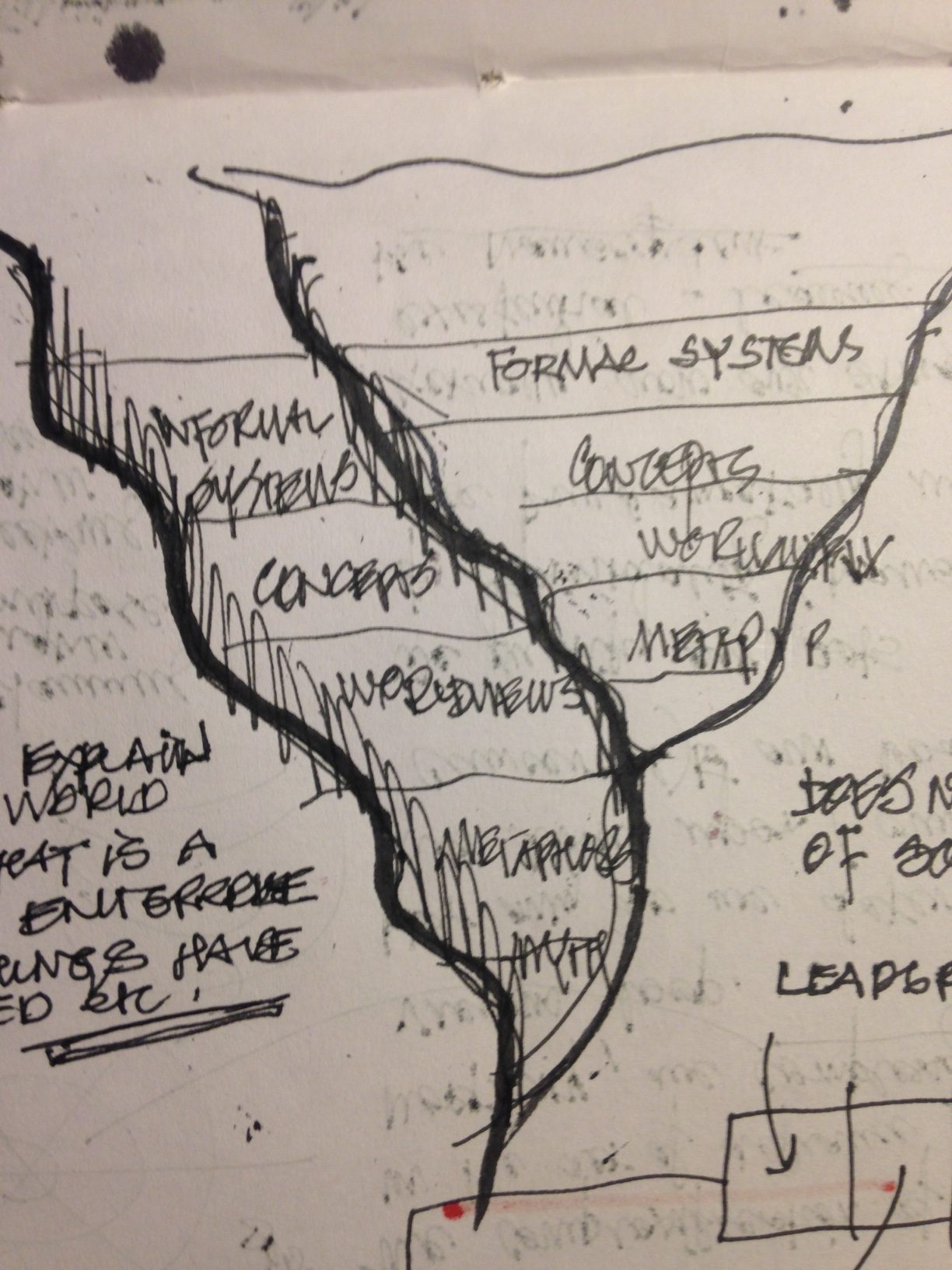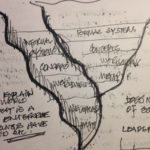‘Complexification’ – Defying Mortality
Complexification isn’t a word of course, but as it seems to suggest, a tendency to make or become more complex.
All living enterprises have a need to endure, to survive and thrive, the more varied and diverse, the better. As the enterprise accomodates a larger range of variation in a given moment, or, over time, it must necessarily become more complex. In a sense, the complexity of the enterprise reflects, and to the best extent possible matches, the complexity it finds in its environment. Clearly, this complexity isn’t structural alone.
In some ways, the desire to survive and endure is an act of defiance – against mortality, and the need to become more complex then, originates in that desire.
The more successful enterprises, those that are able to manage a higher degree of such contextual complexity, endure a wider range of challenges and survive longer.
However, this effort turns out also to be a vicious loop. The increase in internal complexity also makes its own environment more complex – a positive feedback relationship ensues, which in turn drives the need for further complexity. Not only do we, the living enterprise, deteriorate the world we draw upon, the complexification is eventually malignant to our own health and well-being.
We justify our acts of increasing complexity as ones that apparently serve our well-being (a kind of aesthetic need), and a transcendent need (spiritual drive), yet, we remain fundamentally, materially bound.
The challenges we then create are often existential, which is what our current struggles have become. And the worse our existential struggles get, the less spare capacity there is for the aesthetic and the transcendental.
One aspect that has enabled us to grow this complexity, is the progress we have made in improving our productivity. The assumption has always been that the surplus capacity we create will enable us to pursue the higher goals and aspiration we have.
I wonder why that has not turned out to be the case. One way to think of it is perhaps that these surpluses we created were not directed towards collective well-being. For all of us involved in this enterprise must cross and rise above the existential thresholds and any barriers to that must be removed. That is the purpose of that surplus.
We must therefore redirect our surpluses and the corresponding coplexification efforts along pathways to better futures. Narrowly driven pursuits that create complexity, without carrying the whole forward, will make that complexity turn on the enterprise itself, savaging and sabotaging, not just the outside world, but also the inner.




Leave a Reply
Want to join the discussion?Feel free to contribute!